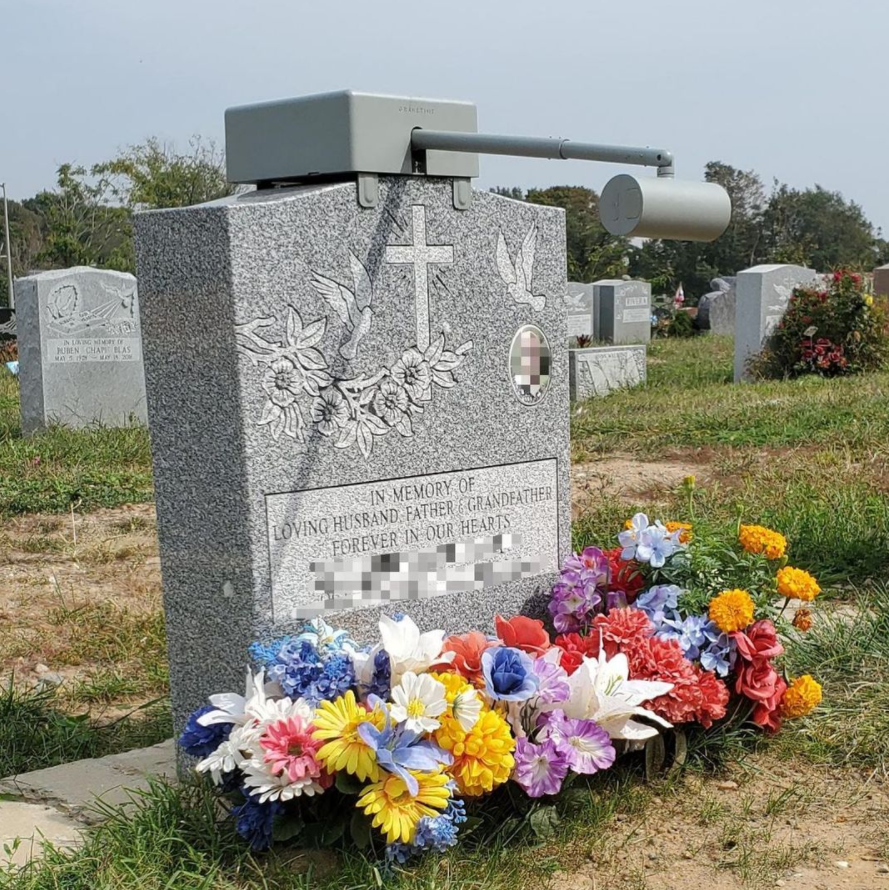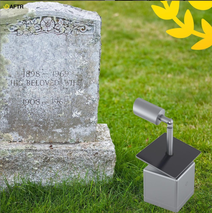|
Photo via Pexels Healthy Goals That Will Help You Manage Your Grief Living with grief is often an exhausting, emotional process that can leave you feeling out of control as it ebbs and flows. Because feelings of grief can seem to diminish and then show up when you least expect it, it’s important to learn a few ways to manage those feelings when they arrive so that you’re not overwhelmed. Taking good care of your mind and body is a great start, but you can also think about how to reduce stressors in your life and look for support; My Grief Connection is a helpful community that strives to make the journey through grief a bit more manageable by providing support resources and counseling information. Here are a few things to consider when you’re ready to find ways to heal: Reduce stress where you can Because feelings of grief are often made worse when there are other difficult emotions present, it’s important to learn how to manage things like stress or anxiety. Reducing stress can be challenging, but you can start by getting a higher quality of rest each night and prioritizing your mental health. It also helps to think about where your biggest stressors lie and pinpoint triggers; for instance, if you’re experiencing stress related to your job, consider the source of those feelings. Are you unhappy with the work itself? Making a big career change in the midst of grief might be overwhelming, but you can start setting a few objectives now and take slow steps toward them. Not only is this rewarding, it can give you a feeling of control over something in your life that’s making you unhappy. Use free tools to boost your career When you’re ready to make a career change, having the right tools at hand is essential. Not only will this help to alleviate stress or anxiety over an impending lifestyle shift, but it will also allow you to stand out in the eyes of potential employers. Resources such as an online resume creator and free templates will give you the tools you need to create a stellar resume using a premade format that’s fully customizable. Rather than creating a resume from scratch–which is time-consuming–simply choose from a library of professional-looking formats and add your own copy. Manage difficult feelings with a hobby Whether you’re feeling stressed, anxious, or just need to find some relief from the emotional roller coaster that is grief, picking up a calming hobby can be extremely helpful. Not only can this be beneficial for your mental health in general, it can actually help you work through your grief and/or trauma. In fact, art therapy is often used in professional counseling settings to help individuals express their feelings safely. You might paint, draw, sculpt, write, or play music in order to process your emotions through a creative outlet. Many people who have never taken up a creative hobby before feel apprehensive at first, believing they don’t have the skills to pull it off, but it’s not about skill. Feeling your way through art therapy can help you manage difficult feelings, which is most important. Find support at home and elsewhere While art therapy is a tool that can be used when you’re alone, it’s important to also find ways to manage feelings of grief through support from friends, family, and others who understand what you’re going through. Utilize tools like My Grief Connection to find support groups near you or to connect with others who are grieving. Because grief can feel like a solitary emotion, it often makes us feel isolated, so making connections can be extremely helpful. Learning to take care of yourself, set some small goals, and utilize free online tools that can help with a career change are all great ways to manage grief, but it still takes time to heal. Remember that there is no one right way to deal with those emotions, and the journey is different for everyone. Special thanks to guest blogger Charley Sunday for contributing this post.
0 Comments
Image via UnsplashA New Home and a Fresh Start Amid Grief It goes without saying that losing a spouse or partner turns your life upside-down. But one thing that doesn't change is your physical surroundings. The route you once walked to the corner store, the kitchen where they cooked your favorite meals, the herb garden you planted together — they're all still there. The same environment that once felt like home can feel disorienting without your partner. If you and your partner lived in the same house for a long time, reminders of the loss can feel ever-present in your space. While some memories of your loved one can bring comfort, constant or intrusive thoughts can take a toll on your mental health. It's okay to consider leaving the home you once shared. In fact, doing so can be an act of self-care. Of course, relocating doesn't eliminate feelings of grief completely, but it may be the fresh start you need to eventually arrive at a "new normal" in your life. Choosing a New Neighborhood You don't have to travel a long distance to experience a completely different neighborhood. You might want to live in the bustle of a city or in the tranquility of the countryside. You may find that you have more flexibility to move closer to work or family now. Rather than frequenting the same local haunts you used to visit with your loved one, you have the chance to find new places to make yourself a "regular." Remember, you can always venture back to your old neighborhood for a visit when the mood strikes. Packing Up Be gentle with yourself. Moving allows you to begin sorting through your loved one's belongings. Maybe you can discard some non-sentimental items as you're decluttering your own possessions for the move. It might be a good time to donate most of their clothing and shoes if you haven't done so already. When it comes to sentimental items, pack them up, and don't force yourself to make any decisions right now. You can store the boxes at your new place and revisit the items inside whenever you're ready. Getting Ready to Sell Moving is always a stressful experience, even when you're not dealing with grief. Make sure to get extra support from friends, family, and professionals. Even if you're usually the do-it-yourself type, consider hiring pros to get your home market-ready. They can quickly address any glaring maintenance issues, such as damaged plumbing, a finicky heating system, cracked windows, or chipped paint. Hiring a house cleaning service to deep-clean your home for real estate photos can be more affordable than you might think. These investments pay off when you place your house on the market. Buying a Home When you're ready to buy a new home, there are a few key steps you'll need to take in order to ensure things go smoothly. First, it's important to get your finances in order. This means creating a budget and saving up for a down payment. You'll also need to get pre-approved for a mortgage. Once you've done all of this, you can start the search for your new home. When you find the right one, be sure to have a professional home inspector take a look before making an offer. Once everything is finalized, you can move in and start enjoying your new home! Once you’ve purchased a home, it’s time to purchase home insurance and consider a home warranty. Are home warranties really worth it? If you’re in a new home with all-new appliances, you could pass on a home warranty. But if the home inspection revealed some issues, it may be wise to purchase a policy. Losing a spouse or partner will require a lengthy healing process. Use the tips above to find a new home and get a fresh start. If you need help processing your feelings of grief, reach out to My Grief Connection to find hope and support. Thank you to our guest blogger Catherine Workman!
Catherine loves seeing the world and believes travel contributes to our overall wellness. She believes we should all leave our comfort zones once in a while and uses travel to boost her physical and mental health. Ms. Workman is part of a great team at Wellness Voyager and enjoys sharing her thoughts on travel and wellness. Survivors of Murder-Suicide Loss Share How You Can Help Support Check out the terrific new post on Brittany Noble McCarthy's blog,
"Survivors of Murder-Suicide Loss Share How You Can Help Support," at https://brittanynoblemccarthy.com/survivors-of-murder-suicide-loss-share-how-you-can-help-support/ Brittany Noble McCarthy is a writer and advocate for two largely misunderstood areas: the life of military families and survivors of murder-suicide loss. In addition to pieces published with the Tragedy Assistance Program for Survivors (TAPS) and The Kentucky Derby Museum. Brittany is the co-founder of a murder-suicide loss support group, along with fellow survivor My Grief Connection founder Sara J. Cobb, and has connected with survivors across the country. She holds a Master’s Degree in Public Communication, and is a certified Peer Mentor with TAPS. Brittany has participated in numerous grief and suicide workshops with TAPS and the American Foundation for Suicide Prevention. She has also connected with leading researchers in the field of suicidology and community violence. This new post was co-written by several murder-suicide loss survivors, including Brittany & Sara, with the intent of helping educate those in survivors’ support systems. In it, they share what would have been most helpful – and what was not helpful – after their initial loss. They have joined in a single voice that they hope reflects anyone who has experienced the tragic loss of a loved one to murder-suicide or any sensationalized, traumatic loss. They cannot and do not speak for all survivors, but if you are a survivor of murder-suicide loss, they hope you know you are not alone. If you are a survivor of murder-suicide loss and are interested in connecting with other survivors for support and/or direction to resources, please reach out to either Brittany or Sara via email for information about their Survivors of Murder-Suicide Loss Virtual Support Group. This private support group meets twice monthly via Zoom to share our stories, encourage and support one another. Guest Blog by Amy Collett Meditation as a Coping Strategy: How to Revitalize Your Body, Mind, and Spirit Photo via Unsplash Experiencing loss, excess stress, undue financial strain, changing family dynamics, and countless other external forces can be extremely challenging, especially during a pandemic. While starting up a hobby or creating new at-home routines can help ease the negative thoughts and emotions and monotony, an alternative to combating these stressors is meditation. Incorporating meditation into your life can help encourage calm amid pandemic chaos. But the benefits can extend well into the future, too. Dive deeper into meditation (and how to DIY at home) here with My Grief Connection. Why Meditation? Emerging research suggests that meditation is beneficial for both your body and mind. Of course, people who have been meditating for years have already felt the difference that daily practice makes in their lives. Want to know more about why you should choose meditation? Meditation Shows Promise for People with Grief and Depression Research on mindfulness and meditation suggests that regular practice may play a part in coping with depression and grief. Results are inconclusive in studies so far, but many researchers are spurred to learn more based on their own positive experiences with meditating and prioritizing mindfulness. Meditation May Help Ease Physical Pain Studies suggest that mindfulness meditation-based action can improve “chronic pain symptomology.” Participants in one study reported a better quality of life after finishing an eight-week meditation program. The results lasted at least three years, suggesting that any amount of meditation can make an impact. Meditation Might Relieve Worrisome Symptoms Though meditation isn’t a cure-all for every ailment, it can help reduce your blood pressure, banish symptoms of irritable bowel syndrome, and even alleviate insomnia, studies suggest. These physical benefits may reduce the need for some medications – though you should always consult with your physician before changing your regimen. How to Start (at Home) You can start meditating at home in a few simple steps. But first, you’ll need a safe, relaxing, and comfortable area to begin your mindfulness practice. To achieve a calmer space, clean and de-clutter it, and let in some fresh air. You don't need a lot of equipment to get started with meditation -- it is recommended that you have a mat or comfortable cushion to sit on. Whether you're listening to a guided meditation or calming music, a soundbar can enhance your mediation sessions by providing high-quality sound. Meditation for Beginners Starting out with meditation can feel intimidating, but it can be as simple and personal as you desire. Expert support is ideal, of course, but you can begin with deep breathing exercises to help melt stress away and spend some rejuvenating me-time in a quiet corner of the house. Positive Psychology suggests beginner-friendly techniques such as breathing, focus, and mantra meditations. But the beauty of this mind-opening activity is that you can make it your own. Of course, if you’re looking for guidance to get to expert-level and really change your life and perceptions, consider seeking professional support. Where to Turn for Support Navigating meditation on your own can seem intimidating. Plus, common barriers to truly becoming mindful and entering a meditative state can stop you from making progress. The solution is to collaborate with an expert in meditation and mindful breathing techniques. You can get one-on-one support, either in person or remotely, to change your approach to meditation. Over time, you’ll find that regular meditation cracks your horizons wide open and exposes you to growth you never thought you could achieve on your own. Whether you go it solo or enlist the help of a coach or partner, dedicate some of your time to meditation. It can provide you with healing and better coping techniques, whether you're dealing with loss, financial hardships, or pandemic-related stress. If you're experiencing loss of any kind, or would like to support an individual who's dealing with grief, visit My Grief Connection for helpful resources such as support groups and grief services. Amy Collett is creator of Biz Well, a website that helps professionals and entrepreneurs build and strengthen their personal brand. When she isn’t helping clients boost their careers or businesses, she enjoys coaching her daughter’s soccer team and training to become a yoga instructor.
How to Handle COVID-Related |
Details
Sara J. CobbFounder, My Grief Connection Archives
July 2024
Categories
All
Note: The website contains some affiliate links, which means that if you purchase something through one of these links we may receive a small commission
– at no extra cost to you. I only promote things I have have either personally tried or strongly believe are beneficial. Any commissions earned helps keep this website going. Thank you for using our affiliate links to help My Grief Connection to continue helping grievers find help & hope. Not responsible for the content, claims or representations of the linked sites, videos, movies, podcasts, groups, events, books, articles, etc. This site provides links and general grief support information and is not intended to serve as or replace professional counseling, guidance or treatment. If you are thinking about hurting yourself or someone else, please contact 911 or the suicide hotline at 988. For any type of crisis situation you can text CONNECT to 741741 to chat with a Crisis Text Line counselor. My Grief Connection - Created 04 July 2019 - Privacy Policy This Page Was Updated On 26 July 2024 © 2019-2024 My Grief Connection
|








 RSS Feed
RSS Feed